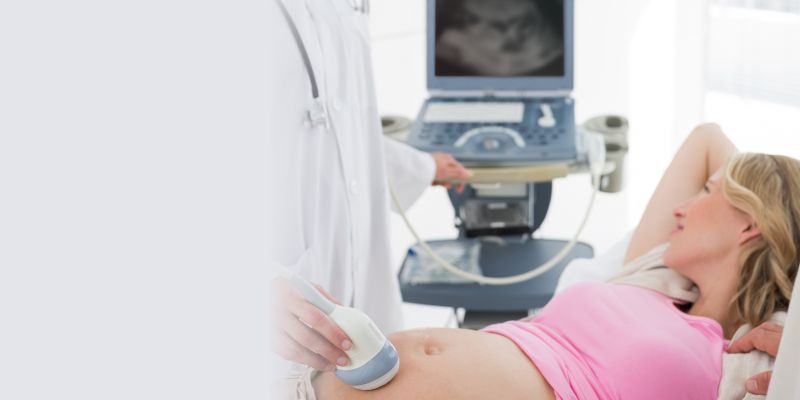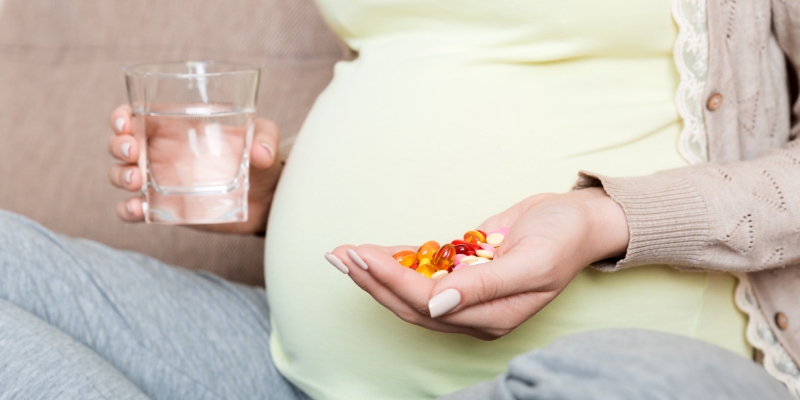MBBS, DCH, MD
Consultant – Pediatrician, Sector 44, Mohali.
Seasonal flu: its effect on pregnancy, childbirth, and newborns
In India, the seasonal flu, a respiratory illness caused predominantly by the influenza virus, emerges as a significant public health concern. According to Dr. Neeraj Kumar, MBBS, DCH, MD, Consultant – Pediatrician, Sector 44, Mohali, flu infection is seen throughout the year with increased activity in some seasons, causing widespread illness, hospitalization, and even death in severe cases. Its impact is particularly pronounced among vulnerable groups, including pregnant women, infants, the elderly, and individuals with preexisting health conditions.
Understanding the nuances of the seasonal flu is crucial, especially considering its potential repercussions on key life stages such as pregnancy, childbirth, and the health of newborns. The flu’s ability to mutate and adapt only heightens the urgency for continuous education and preventive measures. In a country like India, where diverse climatic conditions and varying healthcare access exist, this becomes even more pertinent. This article aims to delve into the multifaceted impact of the seasonal flu, shedding light on its implications for maternal and child health.
Understanding Seasonal Flu
Defining the Seasonal Flu: More Than Just a Common Cold
At its core, seasonal flu is an acute respiratory infection caused by influenza viruses. Unlike the common cold, which is relatively milder, the flu can escalate from mild symptoms to severe complications. The typical symptoms include high fever, aching muscles, a non-productive cough, severe malaise, and sore throat. Its rapid transmission, primarily through droplets from coughing or sneezing, makes it a formidable adversary during flu seasons.
The Viral Culprits: Influenza Types A, B, and C
In India, the influenza landscape is dominated by three primary virus types: A, B, and C. Each type presents its own set of challenges and epidemiological patterns. Influenza A and B are notorious for causing seasonal epidemics, with A being particularly versatile in its ability to mutate, leading to more severe outbreaks. Influenza C, while less common, still poses a threat due to its ability to cause illness, especially in children.
Understanding these virus types is crucial for developing effective vaccination strategies and public health interventions. The influenza virus’s ability to mutate and adapt to environmental conditions underscores the importance of ongoing surveillance and research, particularly in a country as populous and diverse as India.
Seasonal Flu and Fertility
The Intricate Link Between Influenza and Fertility
While the direct impact of seasonal flu on fertility is a complex area of study, understanding this relationship is crucial, especially for those planning a family. Influenza, known for its systemic effects, can potentially influence reproductive health indirectly. Factors such as fever and the body’s immune response to the flu might temporarily affect fertility in both men and women. This underscores the importance of maintaining overall health and flu prevention during one’s reproductive years.
Preparing for Pregnancy Amidst Flu Risks
For couples planning to conceive, navigating the flu season necessitates a proactive approach. This involves adhering to flu prevention guidelines such as regular vaccination, maintaining good hygiene, and avoiding exposure to infected individuals. These measures are not only vital for protecting one’s health but also play a role in creating a conducive environment for conception. It’s a blend of personal responsibility and awareness that paves the way for a healthy start to pregnancy.
The Impact of Flu on Pregnancy
Navigating Pregnancy During Flu Season: A Delicate Balance
Pregnancy brings about significant changes in the immune system, heart, and lungs. These alterations make pregnant women more susceptible to the flu, which can lead to complications such as pneumonia and hospitalization. The suppressed immune system, increased heart rate, and reduced lung capacity during pregnancy create a delicate balance that requires careful management, particularly during the flu season.
The Risks of Contracting Flu in Pregnancy
The implications of contracting the flu during pregnancy extend beyond the mother’s health. Research indicates an increased risk of miscarriage, preterm birth, and low birth weight in babies born to mothers who suffered from the flu during pregnancy. This highlights the critical need for preventive measures, such as flu vaccinations and practicing good hygiene, to safeguard both the mother and the developing fetus.
Flu Vaccination During Pregnancy
Ensuring the Safety of Mother and Child through Vaccination
Flu vaccination during pregnancy is not just a safety measure for the expecting mother but also a protective shield for the unborn child. Numerous studies, including those conducted in India, have shown that seasonal flu vaccines are safe during pregnancy. They play a crucial role in reducing the risk of severe flu-related complications. Pregnant women are recommended to receive the inactivated influenza vaccine, as it does not contain the live virus, ensuring safety for both the mother and the developing fetus.
The Dual Benefit: Protecting the Mother and the Unborn Baby
The seasonal flu vaccine serves a dual purpose. First, it significantly reduces the mother’s risk of contracting the flu, which is especially important given the altered immune system during pregnancy. Second, it offers indirect protection to the unborn baby. The antibodies developed in the mother as a response to the seasonal flu vaccine cross the placenta, providing the baby with passive immunity that lasts for several months after birth. This aspect is crucial in countries like India, where flu can be rampant, and healthcare accessibility varies.
Flu Complications in Pregnancy
Understanding the Spectrum of Complications
The repercussions of contracting the flu during pregnancy can be far-reaching. There is an increased risk of adverse outcomes such as miscarriage, premature birth, and delivering a baby with low birth weight. These risks are compounded by the physiological changes and immune alterations that occur during pregnancy, making flu not just a personal health issue but also a concern for the developing fetus.
Preventive Strategies and Management
Given the potential severity of flu complications during pregnancy, adopting preventive measures is key. Apart from vaccination, pregnant women are advised to follow rigorous hygiene practices, avoid crowded places during flu season, and maintain a healthy lifestyle to bolster their immune system. In the event of flu symptoms, prompt medical consultation is crucial. Early treatment with antiviral medications can mitigate the severity of the flu and protect both the mother and the baby.
Childbirth and Seasonal Flu
The Flu’s Influence on the Childbirth Process
The presence of the flu during pregnancy can have a profound impact on the childbirth process. While there is no direct correlation between the flu and the mode of delivery (natural birth vs. Cesarean section), the overall health of the mother can influence delivery decisions. For instance, a severe flu episode leading to respiratory complications might necessitate a Cesarean section for the safety of both mother and child.
Preparing for Delivery During Flu Season
Given the risks, it is vital for expecting mothers to take extra precautions during flu season. Regular prenatal check-ups, flu vaccinations, and adherence to health guidelines are essential. Hospitals and maternity wards in India should also have protocols in place to manage pregnant women with flu symptoms, ensuring the safety and well-being of both mother and newborn.
Newborns and Exposure to Flu
The Risks for Newborns Exposed to the Flu
Newborns, particularly those whose mothers had the flu during the last stages of pregnancy, face increased risks of respiratory infections and other flu-related complications. The immature immune system of a newborn makes them more susceptible to the virus, which can lead to severe health issues, including hospitalization in some cases.
Preventive Care and Immediate Response
Preventive steps are crucial in safeguarding newborns from the flu. This includes ensuring that all caregivers are vaccinated and adhere to strict hygiene practices. In cases where the mother had the flu during pregnancy, newborns should be closely monitored for any signs of illness. Immediate medical attention is imperative at the slightest indication of flu symptoms in the newborn. Breastfeeding should be encouraged as it can transfer vital antibodies to the baby, offering additional protection against the flu.
Postpartum Care and Flu Management
Navigating the Postpartum Period Amidst Flu Concerns
The postpartum period is a critical time for new mothers, especially in the context of seasonal flu. The physical and emotional changes accompanying childbirth can make mothers more susceptible to infections, including the flu. Therefore, maintaining robust flu prevention strategies during this period is essential. This includes continuing to practice good hygiene, ensuring proper rest, and considering a seasonal flu vaccine post-delivery if not taken during pregnancy.
Safe Medication and Treatment for New Mothers
When it comes to treating flu symptoms in the postpartum period, caution is paramount, particularly for breastfeeding mothers. Medications like acetaminophen are considered safe for lowering fever and treating aches. However, it is crucial to consult with healthcare providers before taking any medication. Antiviral medications prescribed early in the course of the flu can significantly reduce the duration and severity of symptoms, facilitating a quicker recovery for the mother and minimizing the risk of transmitting the virus to the newborn.
Emphasizing Awareness and Proactive Health Management
In conclusion, the impact of seasonal flu on fertility, pregnancy, childbirth, and newborns is multifaceted, particularly in a diverse and populous country like India. Awareness and understanding of these impacts are crucial for expecting mothers and healthcare providers. Preventive measures, including vaccination and good hygiene practices, play a pivotal role in safeguarding the health of both mothers and their babies.
The key takeaway is the importance of a proactive approach towards health management during these crucial phases of life. Regular consultations with healthcare professionals, adherence to vaccination schedules, and prompt treatment of flu symptoms can significantly mitigate the risks associated with the seasonal flu. By prioritizing maternal and newborn health, we can ensure safer pregnancies and healthier beginnings for the next generation.
If you or someone you know is dealing with inverted nipples and its associated challenges, we’re here to help. Schedule a consultation at our clinic to explore the best treatment options tailored for you.
Dr Neeraj Kumar will respond to your query as soon as possible. For emergencies please call and reach Motherhood Hospital, Mohali.
At Motherhood Hospitals, we have a team of experienced supers specialists backed by the latest infrastructure and facilities. We have the best pediatrician in Mohali. We are experts in handling complex deliveries, gynecological, and other surgeries including a range of laparoscopic surgeries.
Do make an appointment with the best childcare hospital in Mohali at a center closest to you. Meet with our doctors who will carry out the required investigations, diagnose the issue, and recommend the most appropriate treatment, enabling you to lead an active life.
If you wish to get in touch with Dr Neeraj Kumar, please book your appointment here.


 Toll Free Number
Toll Free Number
















